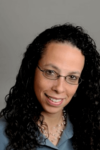
PI: Yo Jackson

PI: Hannah Schreier
NIH T32HD101390
Administered in: College of Health and Human Development
T32 Training Grant on SSRI website
Abstract:
Child maltreatment (CM) is a costly and significant public health problem affecting millions of youth and families each year. To date, no systematic training program exists that addresses the transdisciplinary scope nor the full nature of this complex problem. Consistent with the strategic aims of NICHD, the proposed CMT32 is designed to nurture and develop the next generation of transdisciplinary scholars who will devote their careers to CM science. Housed at Penn State, the CMT32 leverages the infrastructure, projects, and cores of the P50 Capstone Center “Translational Center for Child Maltreatment Studies (TCCMS)” as well as the Child Maltreatment Solutions Networks (CMSN) – 13 core program faculty across 5 Colleges from the fields of clinical child psychology, human development, sociology, biobehavioral health, pediatrics, educational psychology, nursing, and developmental psychology – to guide trainees in four topical training tracks: biological embedding, developmental processes, prevention and treatment, and policy, administrative data and systems research. In addition to immersion within and across substantive tracks, training in ethics, innovative methods, translation to policy and practice, and community engagement is emphasized. Aided by an experienced Advisory Board, the MPIs (Program Director of Training, Jackson and Program of Director of Research, Schreier) along with research productivity, community engagement, training in responsible conduct, peer support, and policy activities. With devoted efforts to attract a diverse group of pre and post doc trainees, the CMT32 will prepare the next generation of scholars to transcending siloed approaches in favor of transdisciplinary tream-science to solve the complex problem of CM.